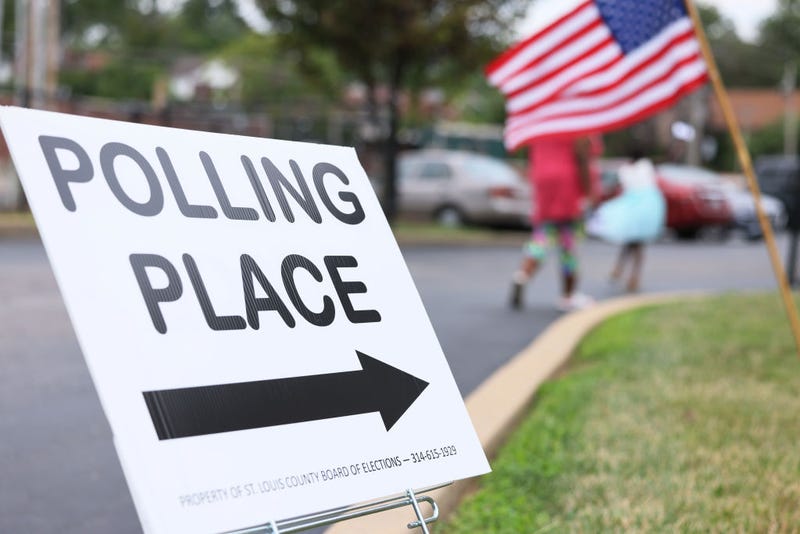
While Republicans, specifically voters of former President Donald Trump, have made voter fraud a major political talking point in recent years, an analysis released this week shows that real voter fraud is rare.
In fact, The New York Times review of 400 voting fraud charges filed nationwide since 2017 determined that actual prosecutions for election fraud are “blue-moon” events. Typically, those caught didn’t even realize they were breaking the law, said the outlet.
Experts indicate this is the case for at least most of the 20 people recently charged with voter fraud in Florida and some believe that the cases will not hold. However, state Gov. Ron DeSantis continued to push the voter fraud narrative last week.
“When people sign up” to vote, “they check a box saying they’re eligible,” he said, according to The New York Times. “If they’re not eligible and they’re lying, then they can be held accountable.”
The Times said that “attacks on voter fraud have been a staple of Mr. DeSantis’s term as governor,” which began in 2019. Earlier this year, he announced the establishment of the Office of Election Crimes and Security.
Prior to this year, Florida prosecutors had adjudicated an estimated 25 voting law cases since 2017.
“Until recently, penalties have been mild – probation, small fines, jail time served concurrent with other sentences,” said The Times. Throughout the country, punishment for voter fraud can be “wildly inconsistent,” and the harshest often fall on voters who do not have enough resources to mount a defense, the outlet said.
Daniel Smith, an expert on elections and voting at the University of Florida called the recent arrests in Florida. “political grandstanding.”
Since there is no comprehensive list of voter fraud cases, The Times searched newspapers from all 50 states, internet accounts of fraud and online databases to compile a list of prosecutions in the past five years for its analysis. The outlet said its sample is “undoubtedly incomplete.”
The Times analysis showed was that less than two people per state are charged with voter fraud annually. This figure is “infinitesimal” compared to the estimated 159.7 million people who voted in the 2020 presidential election.
States have their own nuanced rules regarding voter fraud, such as Missouri laws updated in recent years.
According to The Times, “most fraud cases fall into one of four categories: falsely filling out absentee ballots, usually to vote in the name of a relative; voting twice, usually in two states; votes cast illegally by felons; or votes cast by noncitizens.”
Examples of fraud include Edward Snodgrass, a trustee in Porter Township, Ohio, who said he was trying to “execute a dying man’s wishes” when he filled out and mailed in his deceased father’s ballot in the 2020 election. Snodgrass was fined $800 and sentenced to three days in jail.
Terri Lynn Rote’s case in Iowa is another example. She said she cast two ballots for Trump in 2016 because she believed her first vote would be switched to favor Hillary Clinton. A judge fined her $750 and sentenced her to two years’ probation.
Previously, a Brennan Center for Justice report also determined “that most allegations of fraud turn out to be baseless and that most of the few remaining allegagtions reveal irregularities and other forms of election misconduct.” The report cited “numerous studies,” including one commissioned by the Trump administration.
Yet, the Trump camp and former president’s followers have evoked the “specter of a ‘rigged election’” since his initial run for office in 2016, according to the Brookings Institute. Following his loss to current President Joe Biden in 2020, unfounded election fraud claims have continued, NPR reported this month.
“The high-decibel political rhetoric behind fraud prosecutions drowns out how infrequent — and sometimes how unfair – those prosecutions are, said Richard L. Hasen, an expert on election law and democracy issues at the U.C.L.A. School of Law,” per The New York Times report.
All of the 16 prosecutions recorded in 2020 by a $2.2 million-per-year election integrity squad headed by Ken Paxton were of residents in the Houston, Texas, area who put wrong addresses on registration applications, added the outlet. None of those prosecutions resulted in jail time.
“Many of the squad’s cases have turned out to be decidedly small-bore affairs,” said The Times of Paxton’s effort. It described him as one of the most “zealous” election integrity advocates in the U.S.
According to the Brennan Center, “voter fraud is unacceptable, but we must find solutions that address actual problems instead of imposing policies that make it harder for millions of eligible Americans to participate in our democracy.”
Follow KNX News 97.1 FM
Twitter | Facebook | Instagram | TikTok



